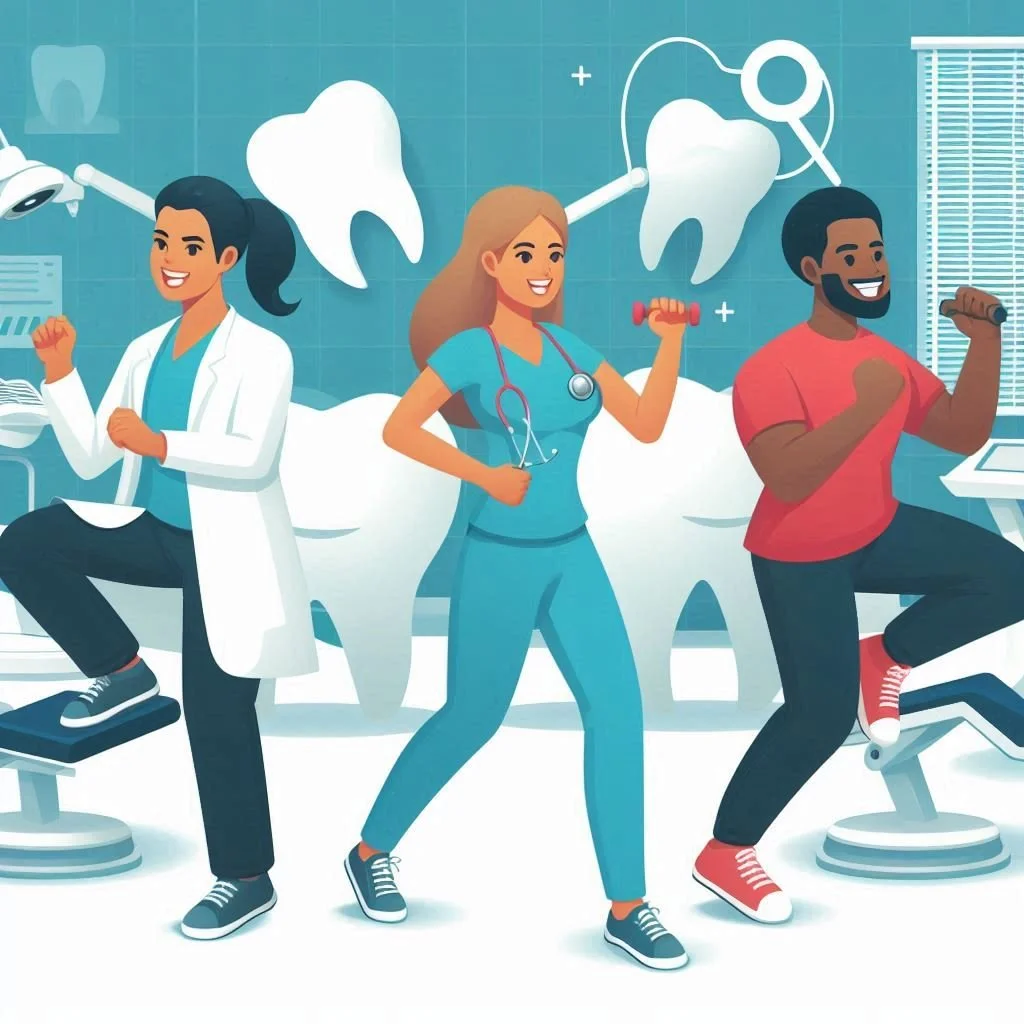The Vital Link: Physical Health and Wellbeing
The demands of dental practice can take a toll on both physical and mental health. Long hours, repetitive motions, and the stress of patient care can lead to burnout, anxiety, and depression if not properly managed. However, prioritising physical health and incorporating regular exercise into your routine can have a profound impact on overall mental wellbeing, enhancing resilience and promoting a more balanced lifestyle.
The Mind-Body Connection
The relationship between physical and mental health is undeniable. Regular exercise has been shown to release endorphins, the body's natural mood-boosters, which can alleviate symptoms of depression and anxiety. Additionally, exercise promotes better sleep, increases energy levels, and boosts self-confidence – all of which contribute to improved mental well-being.
Combating Stress and Burnout
Dental practitioners often face high levels of stress due to the demanding nature of their work. Prolonged stress can lead to burnout, a state of physical, emotional, and mental exhaustion. Exercise serves as an effective stress-management tool, providing an outlet for releasing pent-up tension and anxiety. By engaging in physical activity, you can clear you mind, improve focus, and return to work with renewed energy and a more positive mindset.
Enhancing Cognitive Function
Regular exercise has been linked to improved cognitive function, including better memory, concentration, and problem-solving abilities. These cognitive benefits are particularly valuable to help maintain sharp mental acuity necessary to providing high-quality patient care and navigating complex clinical situations. By incorporating exercise into your routines, you can enhance cognitive performance, leading to better decision-making and improved patient outcomes.
Practical Tips for Incorporating Exercise
While the benefits of exercise for mental well-being are well-established, finding the time and motivation to incorporate it into a busy schedule can be challenging. Here are some practical tips to help dental practitioners make physical activity a priority:
Start Small: Begin with manageable goals, such as taking a brisk walk during lunch breaks or incorporating simple stretching exercises throughout the day. Gradually increase the duration and intensity as you build momentum.
Find Activities You Enjoy: Exercise doesn't have to be a chore. Explore different activities that align with your interests and preferences, whether it's cycling, swimming, yoga, or team sports. When you enjoy the activity, you're more likely to stick with it.
Schedule It: Treat exercise appointments as you would any other important commitment. Block off time in your calendar and prioritize it as you would a patient appointment or staff meeting.
Involve Your Team: Encourage your dental team to participate in physical activities together. This not only promotes a healthier workplace culture but also fosters team bonding and camaraderie.
Invest in Home Equipment: If time is a constraint, consider investing in home exercise equipment or following online workout videos. This eliminates the need for commuting to a gym and allows you to fit in exercise whenever it's convenient.
Track Your Progress: Use fitness trackers or apps to monitor your progress and set achievable goals. Celebrating milestones and recognising improvements can provide motivation and a sense of accomplishment. James Clear (Atomic Habits) says the key to sticking to a new habit is tracking it.
Seek Professional Guidance: If you're new to exercise or have specific health concerns, consider consulting with a certified personal trainer or healthcare professional. They can provide personalised guidance and ensure you engage in safe and effective exercise routines.
Incorporating regular physical activity into your routine is an investment in your overall well-being as a dental practitioner. By prioritizing exercise and maintaining a healthy lifestyle, you can combat stress, prevent burnout, enhance cognitive function, and ultimately provide better care for your patients. Remember, taking care of your physical and mental health is not just a personal responsibility but also a professional obligation to ensure you can deliver your best to those who rely on your expertise.
Read more about exercise here.
Join the parkrun community - a free 5km walk or run held in hundreds of locations around Australia (and the world) every Saturday morning.

